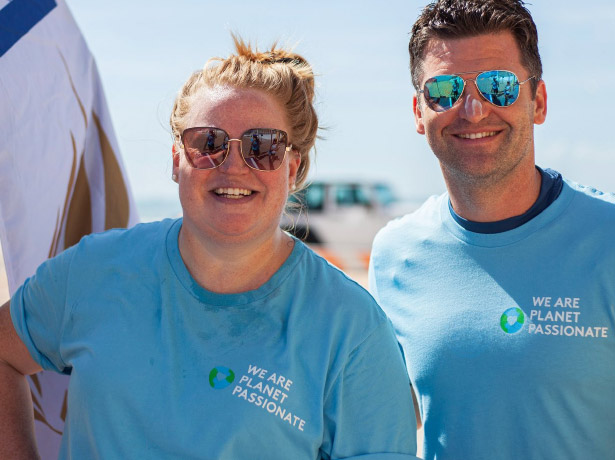Marine debris, man-made solid material, including trash and litter, that ends up in the ocean, is threatening beaches, coastal waters, estuaries, and oceans throughout the world. According to the United Nations Environment Programme (UNEP), plastics account for 85% of marine litter and without urgent action, the estimated 11 million metric tons of plastic currently entering the ocean annually will triple in the next 20 years.
The burgeoning problem of marine litter has dire consequences for health, the economy, biodiversity and the climate. Global in scale, this problem presents an opportunity for everyone to do their part to create a cleaner, more sustainable planet.
As part of our Planet Passionate program, Kingspan is working to help tackle the problem of marine litter by establishing five major ocean cleanup projects around the globe by 2025. This initiative started in 2019 under a three-year partnership with the EcoAlf Foundation to proactively help remove up to 150 tons of waste from the Mediterranean each year. Kingspan is adding this recovered ocean plastic to our global manufacturing chain, reusing as much of the recovered plastic as possible in the production of our insulated metal panel products. These ocean cleanup efforts will help Kingspan deliver on our commitment to upcycle 1 billion bottles into insulation by 2025.
Kingspan employees are also doing their part to be Planet Passionate and help clean up our oceans. The Canadian sales team recently participated in a beach cleanup at Hot Sands Beach in Kelowna, BC, Canada. Beach cleanups like these reduce pollution and keep litter from making its way from the shores into the ocean. That in turn improves coastal and ocean ecosystems and protects the many plants and animals that call these ecosystems home. Beach cleanups are also critical for preserving the beauty of our shores and supporting tourism and local economies.
Through Planet Passionate, our company and our employees are working to address environmental challenges like marine litter to protect our climate and the biodiversity of the planet.


